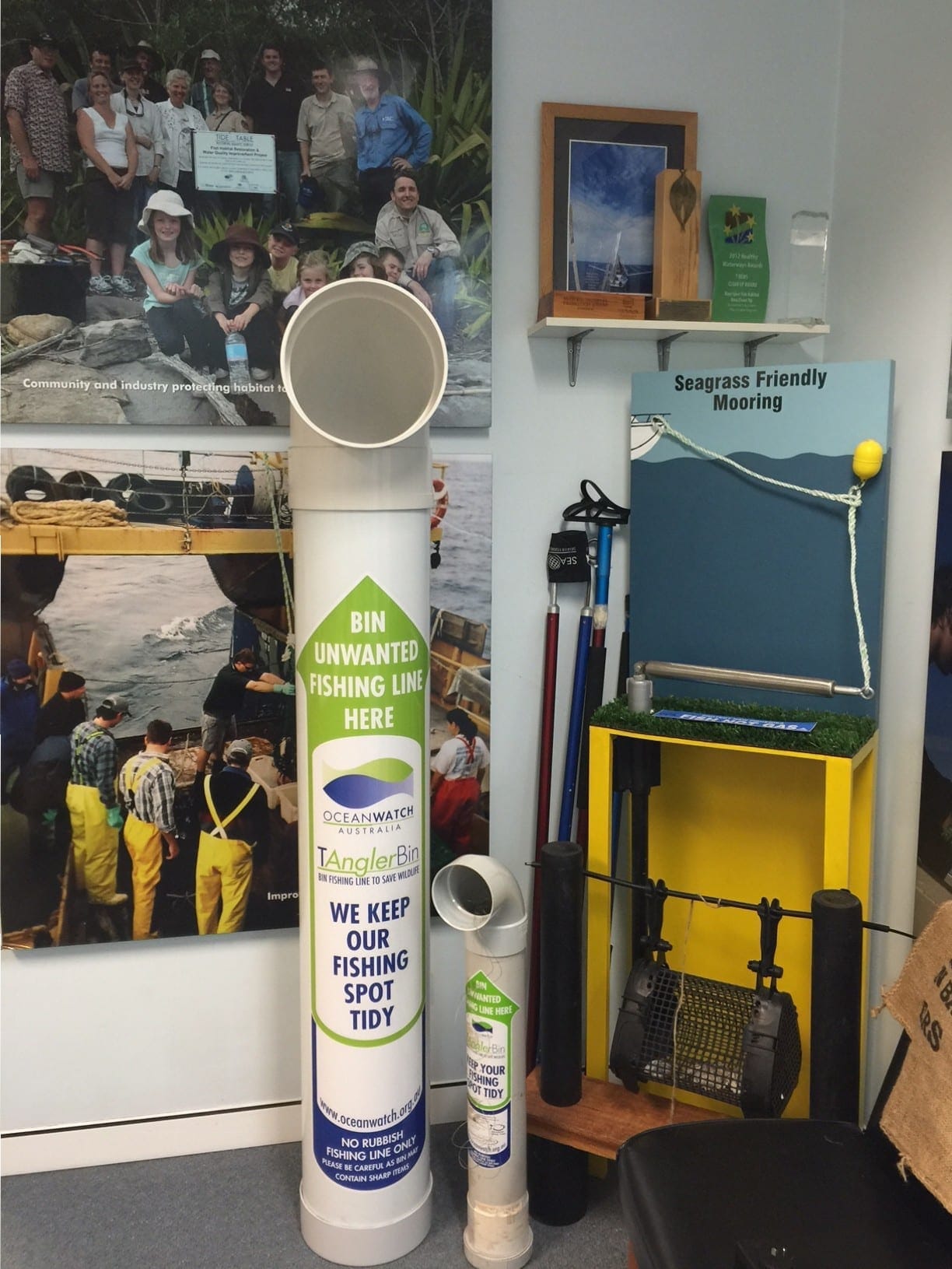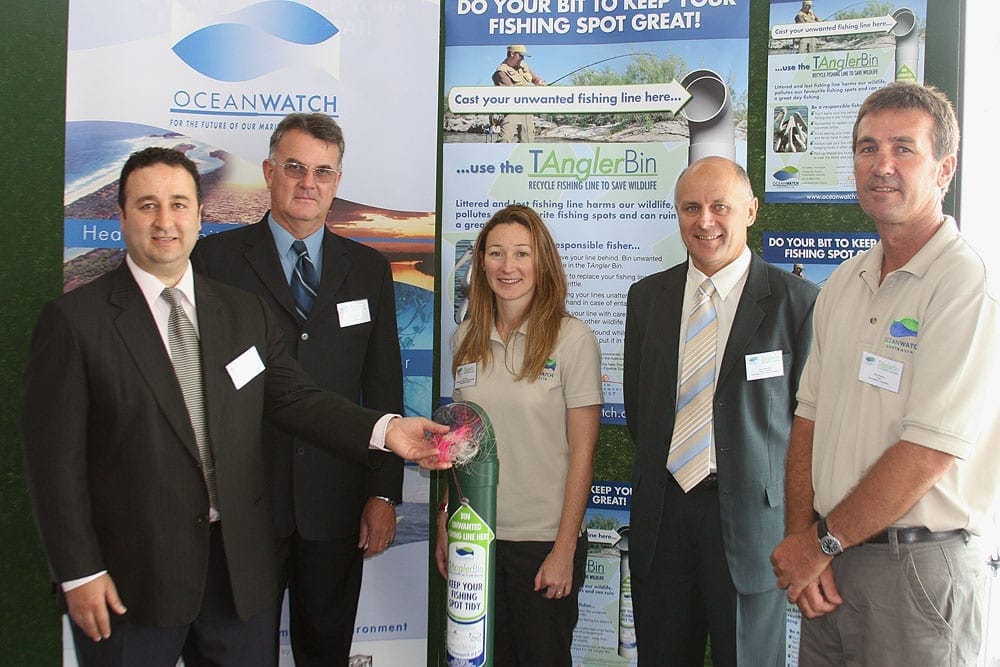OceanWatch has partnered with many groups including Gladstone Ports Corporation, the NSW recreational fishing industry, DPI Fishcare Volunteers, local fishing clubs, bait and tackle shops and local councils to install TAngler bins.
Since 2006, more than 350 TAngler bins have been installed in key coastal locations in Victoria, NSW and Queensland where lost and littered fishing line is most prevalent. Since commencement, the project has collected more than 10 tons of discarded fishing line.
OceanWatch continues to seek funding to target specific hot spots however interested Councils, land managers or volunteers can also request to purchase individual bins direct from us.
TAngler bins cost $125 plus postage (worked out on your order size and location) plus GST.
Cost includes constructed bins, generic TAngler sticker with space at base for additional logos, stainless steel bracket attachment mounts to attach to a pole.
An Information leaflet, promotional posters for bush shelters and a huge 1.8m unit for promotional use (see below) are also available for functions at minimal cost.
Please inquire comms@oceanwatch.org.au



